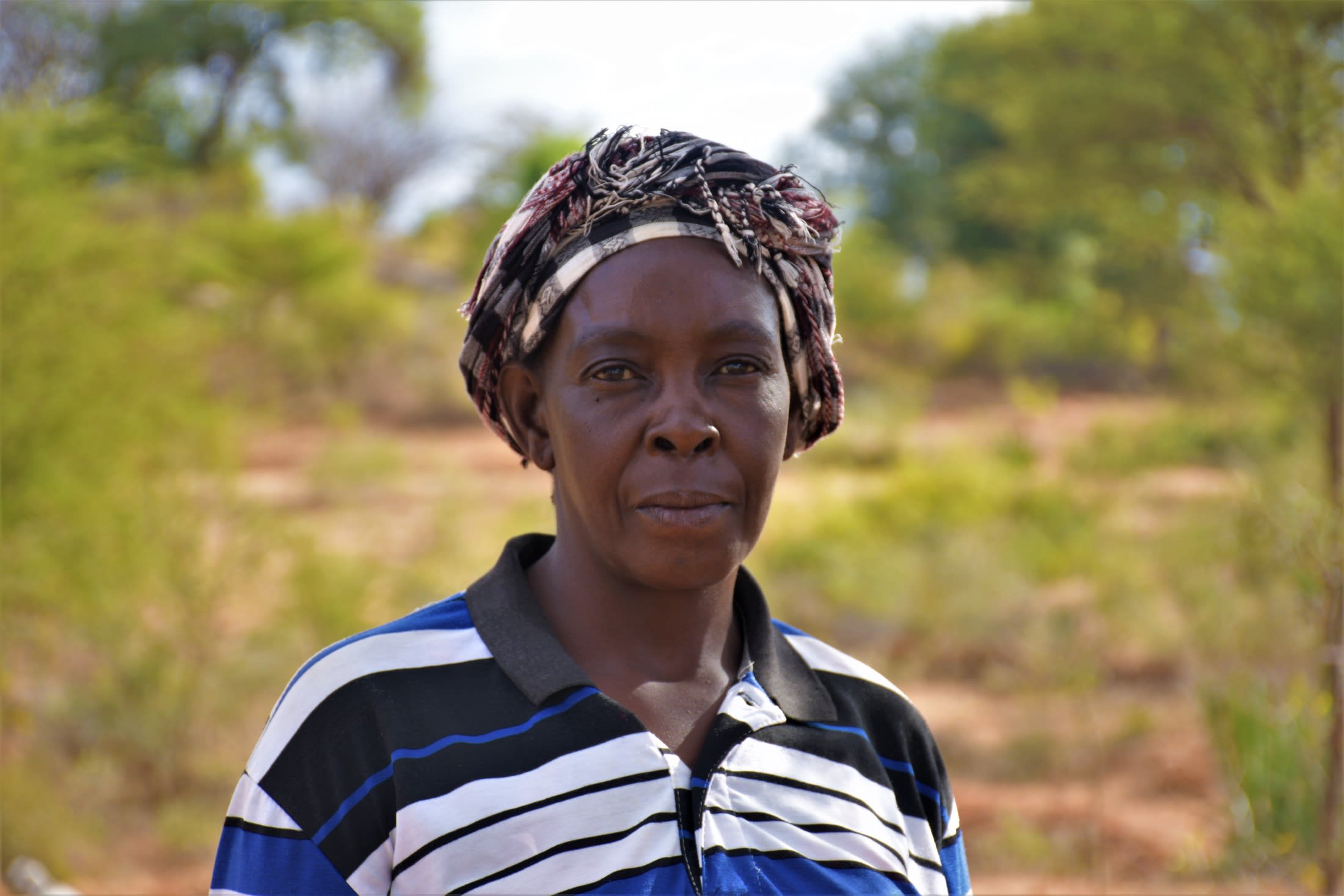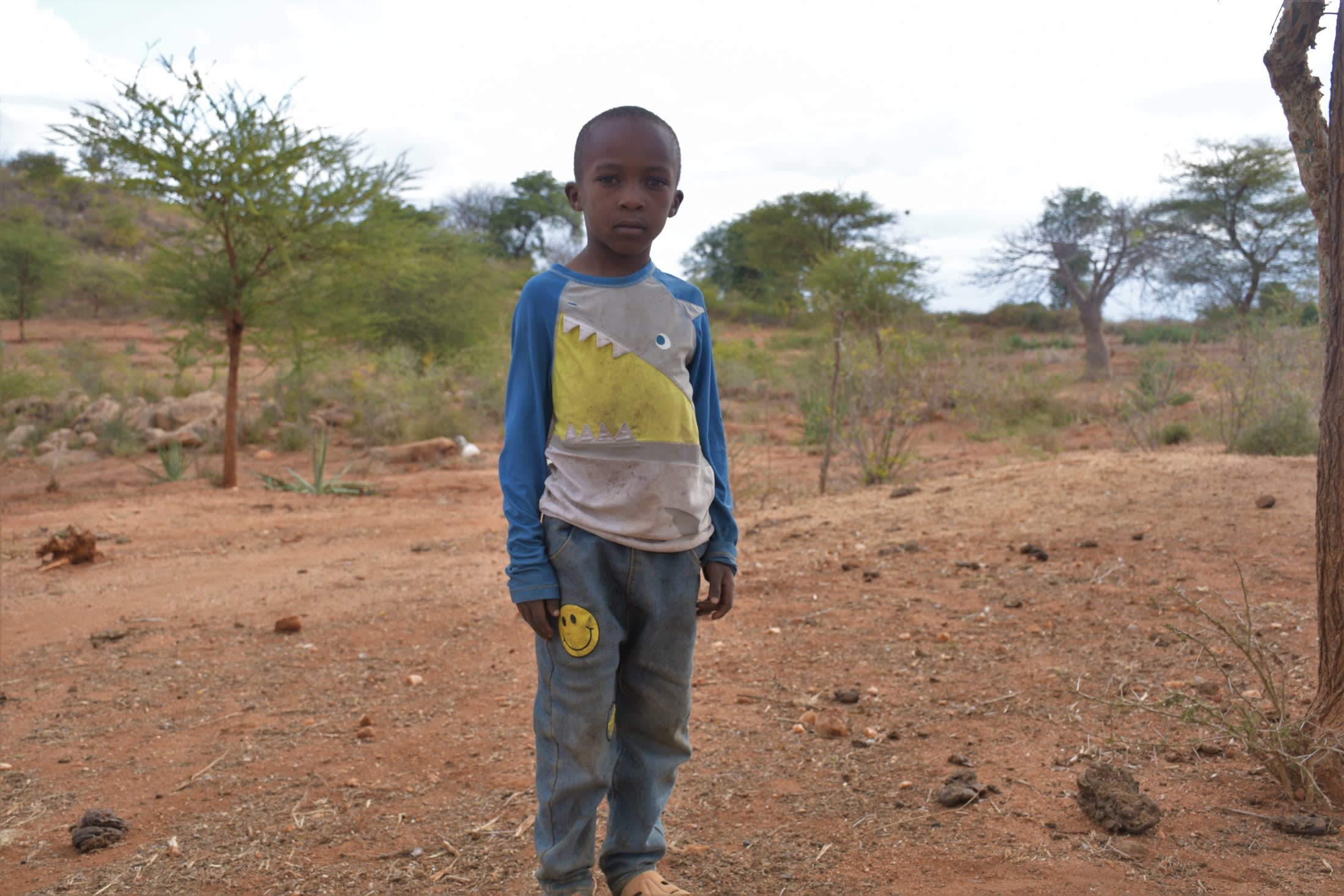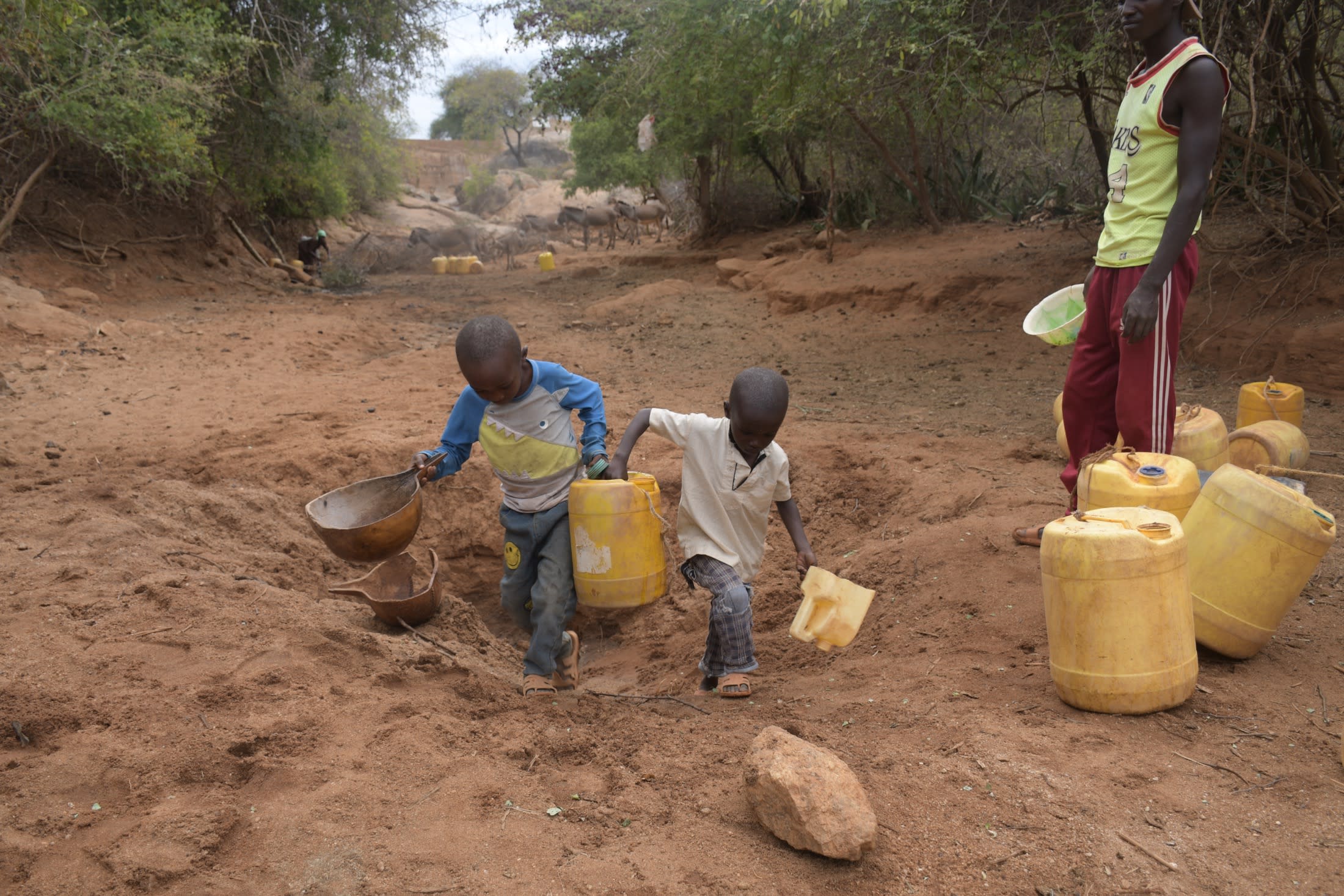The 370 people of Tulanduli live far from a reliable water source, so water needed for their daily tasks comes from scoop holes dug in the sandy riverbed. But this water isn't easy to acquire.
"Most residents have to walk more than four kilometers to fetch water from the scoop hole. They carry water using their donkeys or [their] backs when one cannot afford a donkey. This ordeal takes about several hours daily, depending on how long the queues [are], [and the] amount of water and distance to a resident's house," said field officer Alex.
Because acquiring the water takes such a long time, the people of Tulanduli get less of it, disrupting their routines and leaving important things like work, household chores, and school by the wayside.
"Waking up every morning to fetch water is exhausting because I walk for several kilometers and have to travel back home while carrying water on my back," said Agnes Muli Muthami, a 45-year-old farmer.

Agnes continued: "I arrive at home after midday, leaving me with little time to perform household duties like cleaning. The insufficient water also means I rarely conduct personal hygiene, which is uncomfortable considering that I am a married woman with two children. Cultivating crops is also challenging because there is no water for irrigation, and I cannot carry water enough water to irrigate my crops."
Eight-year-old Joshua K., shown below, said, "Meals delay at home, and we sometimes have to take one meal per day because of the immense drought."

But delays to their daily schedules are not the only problem community members face, because the water they manage to collect must be used sparingly, negatively impacting their hygiene and sanitation and rendering people more vulnerable to illnesses.
“Safe and sufficient water facilitates the practice of hygiene, which is a key measure to prevent not only diarrheal diseases, but acute respiratory infections and numerous neglected tropical diseases.” -WHO
And sadly, the water they work so hard to collect is contaminated, so when people consume it, they suffer from water-related illnesses. Often people are desperate for medical attention but cannot afford it and must rely on traditional cures that sometimes do more harm instead.
"The water from the scoop holes is also contaminated, and I have had to seek medical aid from the local dispensary. Sometimes like last week, we opted for traditional herbs because my parents had no money for the medical bill," said Joshua, at a scoop hole below.

Community members need a reliable, clean water source closer to their homes so they can use their time and energy to strengthen their resources to build better lives.
Note: Our proposed water point can only serve 300 people per day. We are working with the community to identify other water solutions that will ensure all 370 people in the community have access to safe and reliable drinking water.
What We Can Do:
Reliable Water
Our main entry point into this community has been the Self-Help Group, which comprises households working together to address water and food scarcity in their region. These members will be our hands and feet in constructing water projects and spreading the message of good hygiene and sanitation to everyone.
Hand-Dug Well
This particular hand-dug well will be built adjacent to a sand dam project, which will supply clean drinking water once it rains. We have provided the group with the tools needed for excavation. With the guidance of our artisans and mechanics, the excavated well will be cased, sealed with a well pad, and then finished with a new AfriDev pump.
Excavation takes a month or more on average, depending on the nature of the rock beneath. Construction of the well lining and installation of the pump takes 12 days maximum. The well will be lined with a concrete wall including perforations so that once it rains, water will filter in from the sand dam.
This well will bring clean water closer to families.
New Knowledge
These community members currently do their best to practice good hygiene and sanitation, but their severe lack of water has significantly hindered reaching their fullest potential.
We will hold hygiene and sanitation training sessions with the Self-Help Group and other community members to teach essential hygiene practices and daily habits to establish at the personal, household, and community levels. This training will help to ensure that participants have the knowledge they need to make the most out of their new water point as soon as the water is flowing.
One of the most important topics we plan to cover is handling, storage, and water treatment. Having a clean water source will be extremely helpful, but it is useless if water gets contaminated when it is consumed. We will also emphasize the importance of handwashing.
The community and we firmly believe that all of these components will work together to improve living standards here, which will help to unlock the potential for these community members to live better, healthier lives.
We typically work with self-help groups for 3 to 5 years on multiple water projects. We will conduct follow-up visits and refresher training during this period and remain in contact with the group after all of the projects are completed to support their efforts to improve sanitation and hygiene.





 Protected Dug Well
Protected Dug Well
 Rehabilitation Project
Rehabilitation Project















 "During the soap-making training, the members sang different songs to motivate those who were stirring, and this made them to be patient until the final product was obtained," said trainer Christine Lucas.
"During the soap-making training, the members sang different songs to motivate those who were stirring, and this made them to be patient until the final product was obtained," said trainer Christine Lucas.










